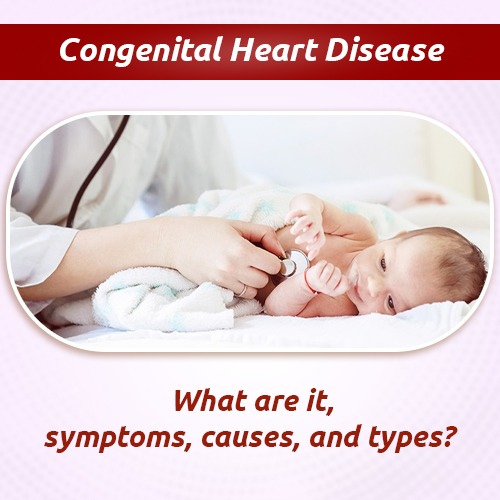
Does stress increase your risk of heart disease – Heart disease problems have increased dramatically nowadays. About 70% of people suffering from a heart problem get this disease due to excessive stress in their life. Every one of us has little stress in our life. But when it stays for a prolonged period, then it can be a cause of serious illness.
Stress exposes your body to unhealthy, persistently elevated levels of stress hormones like adrenaline and cortisol.
Does stress increase your risk of heart disease – Stress leads to some physical changes in our body. These are:
- Low energy level
- Headaches and aches in other body parts of body and muscles
- Insomnia
- An increase in heartbeats and chest pain
- Stomach problems like diarrhoea, nausea, constipation etc
- Nervousness and depression,
- Sweating
- Change in eating habits
All these changes increase the level of blood sugar, blood pressure and cholesterol level to a great extent. Hence, heart problem arises. If stress is managed properly, the risk of heart problems will get reduce ultimately.
Does stress increase your risk of heart disease – Following are some ways to manage your stress:
- Exercising regularly
- Spend time with friends and family
- Getting enough sleep
- Maintaining a positive attitude.
- Listen to music
You can also take the help of your health care provider to manage stress. It is important if you have other risk factors for heart disease, such as obesity or high blood pressure.
Does stress increase your risk of heart disease – Types of Stress
There’s a crucial distinction between acute stress – the body’s immediate reaction to a perceived threat – and chronic stress, which persists over an extended period, often becoming detrimental to health.
Physiological Response to Stress
When we encounter stress, our bodies activate the “fight or flight” response, releasing hormones like cortisol and adrenaline. While this response is essential for survival in short bursts, chronic activation can lead to adverse health effects.
Stress and Heart Disease
Overview of Heart Disease
Heart disease remains a leading cause of mortality worldwide. Understanding its connection to stress requires a deep dive into scientific studies exploring the intricate relationship between the two.
Studies Linking Stress to Heart Disease
Numerous studies have investigated the link between chronic stress and heart disease, revealing compelling evidence of their interdependence. We’ll dissect these studies to provide a comprehensive understanding.
Mechanisms Behind Stress-Induced Heart Issues
To comprehend how stress contributes to heart disease, we’ll explore the physiological mechanisms involved. From elevated blood pressure to inflammation, stress can be a silent yet potent contributor to cardiovascular issues.
Identifying Stressors
Common Stressors in Daily Life
From work pressures to personal relationships, daily life is rife with stressors. We’ll identify common triggers and provide insights into how recognizing them can be the first step towards better stress management.
Personalized Stress Triggers
What stresses one person may not affect another in the same way. We’ll discuss the importance of identifying personalized stress triggers for tailored stress management strategies.
Impact of Chronic Stress on Cardiovascular Health
Chronic stress takes a toll on the cardiovascular system. We’ll delve into the specific ways it affects heart health, emphasizing the importance of proactive measures.
Managing Stress
Lifestyle Changes to Reduce Stress
Small adjustments to daily routines can have a significant impact on stress levels. We’ll explore practical lifestyle changes that can promote a calmer, more balanced life.
Stress-Relief Techniques
From meditation to deep breathing exercises, we’ll discuss various stress-relief techniques and their proven efficacy in promoting relaxation and reducing stress.
Importance of Relaxation
In the fast-paced world we live in, relaxation often takes a back seat. We’ll highlight the crucial role of relaxation in mitigating the negative effects of stress on the heart.
Stress and Lifestyle
Diet and Stress Connection
What we eat can influence stress levels. We’ll explore the connection between diet and stress, offering dietary tips for a more resilient stress response.
Exercise as a Stress-Reducing Tool
Physical activity isn’t just beneficial for the body; it’s a powerful stress-reducing tool. We’ll delve into the science behind exercise’s positive impact on stress.
Adequate Sleep and Its Impact on Stress Levels
Quality sleep is often underestimated in its role in stress management. We’ll discuss the importance of sufficient and restful sleep for maintaining optimal stress levels.
Mental Health and Heart Health
Mental Health’s Role in Stress
A healthy mind contributes to overall well-being. We’ll explore the intricate relationship between mental health and stress, emphasizing the need for a holistic approach.
Strategies to Enhance Mental Well-Being
Practical strategies for enhancing mental well-being will be discussed, focusing on mindfulness, positive affirmations, and fostering a positive mindset.
Professional Help and Its Benefits
Sometimes, seeking professional help is necessary. We’ll break down the stigma surrounding mental health support and discuss the potential benefits of therapy and counseling.
Coping Mechanisms
Developing Healthy Coping Mechanisms
Building healthy coping mechanisms is crucial for managing stress effectively. We’ll provide practical tips for developing positive coping strategies.


